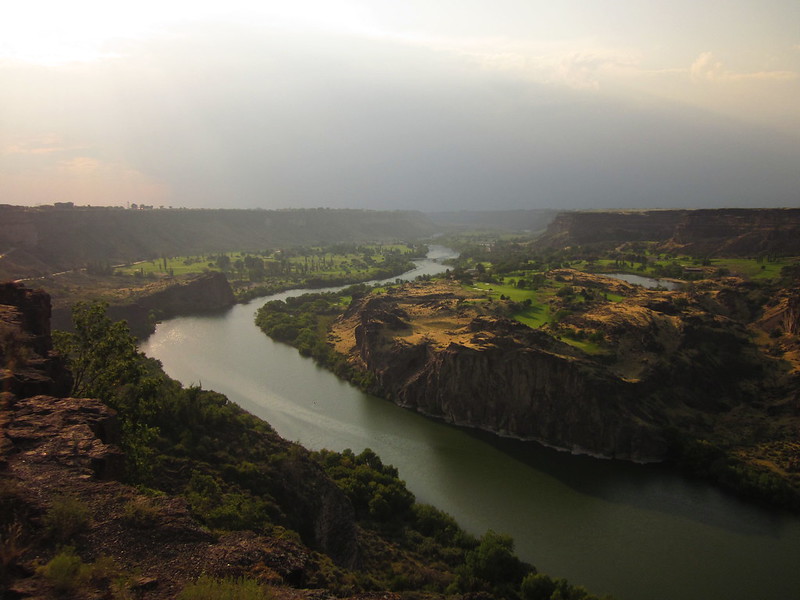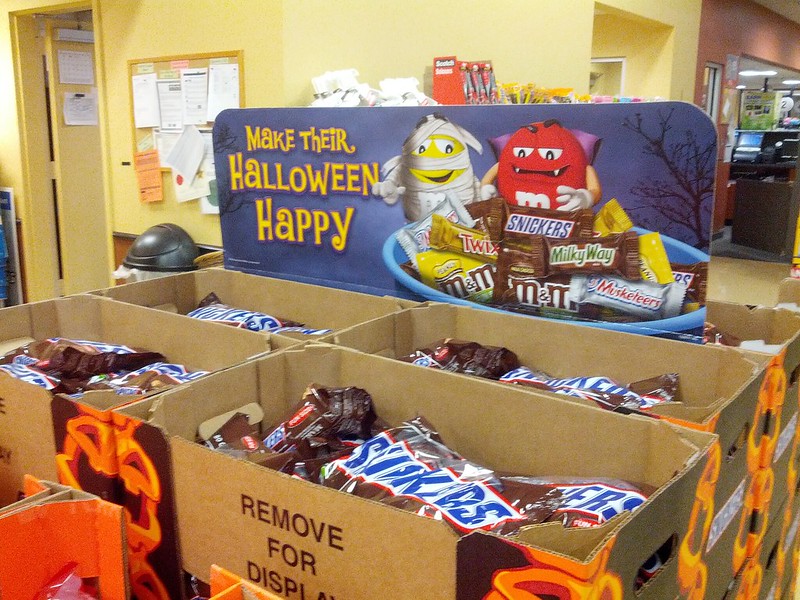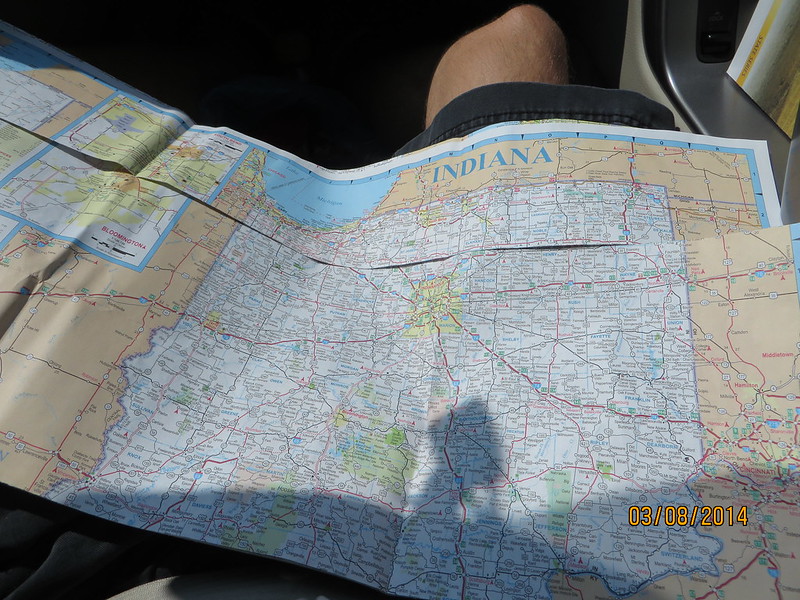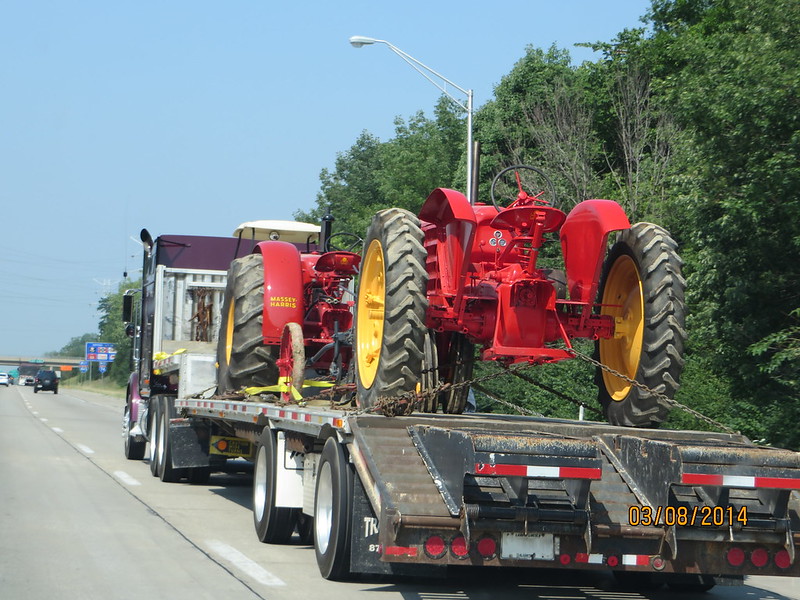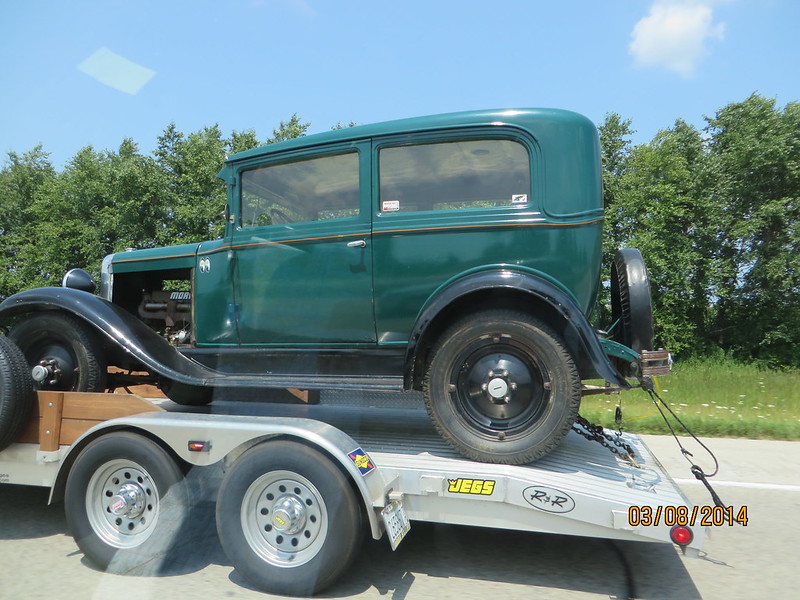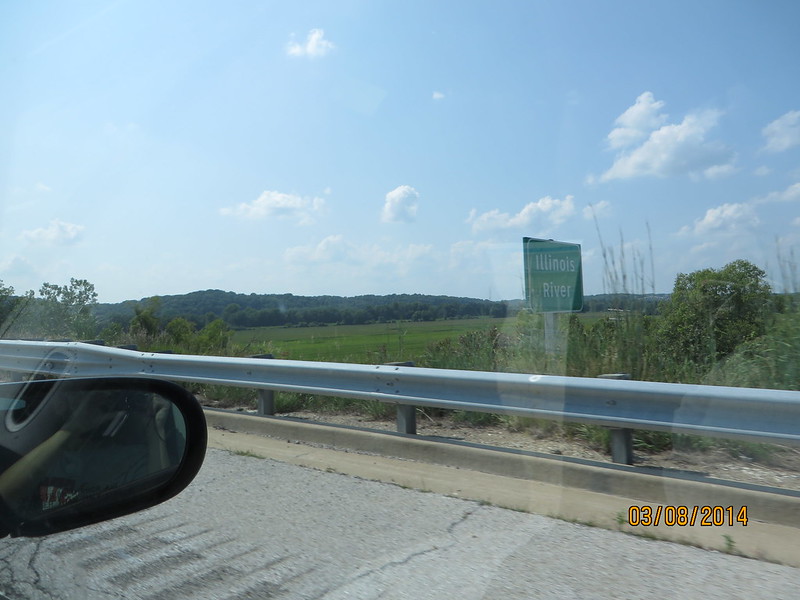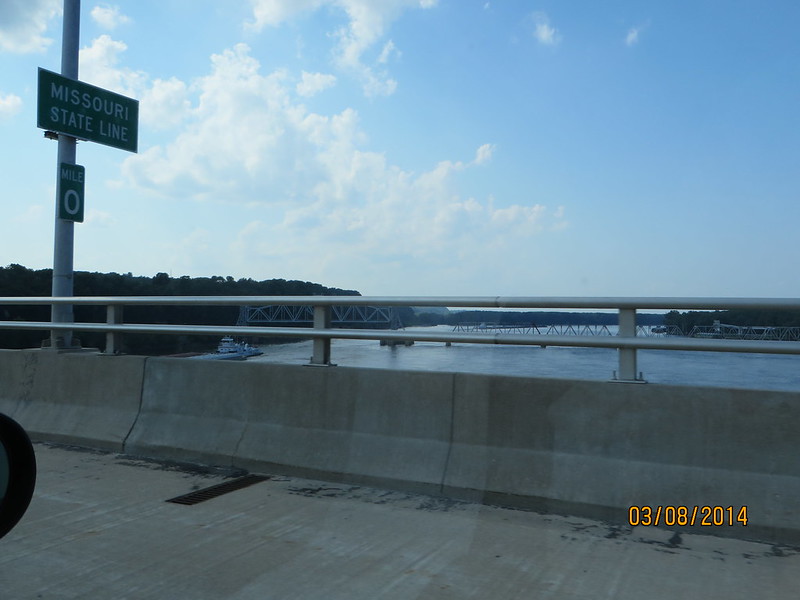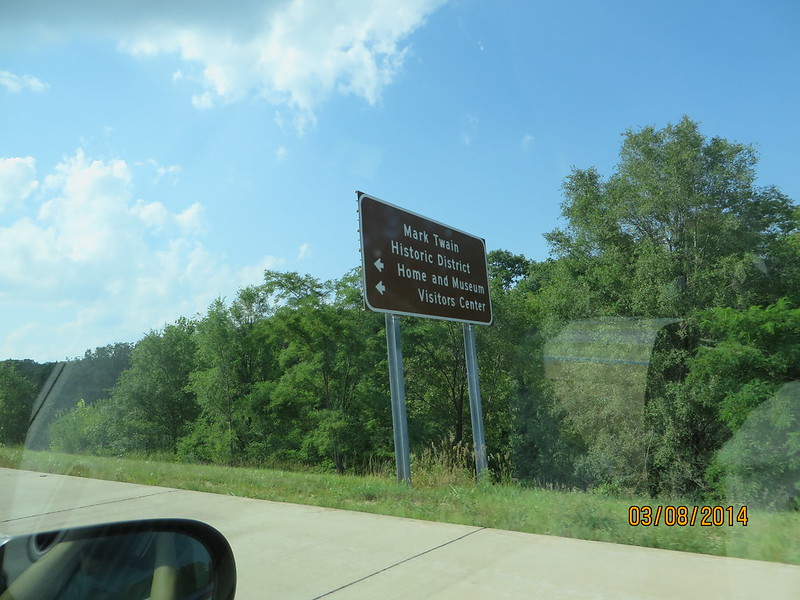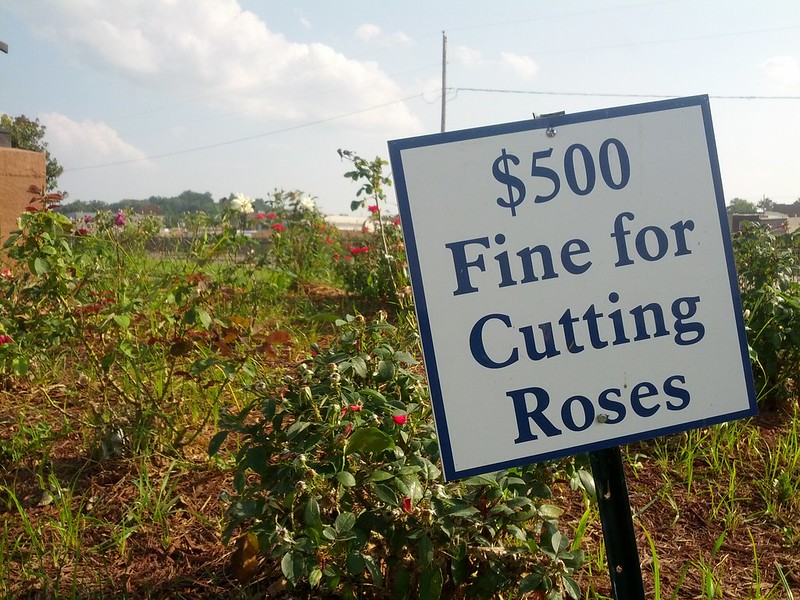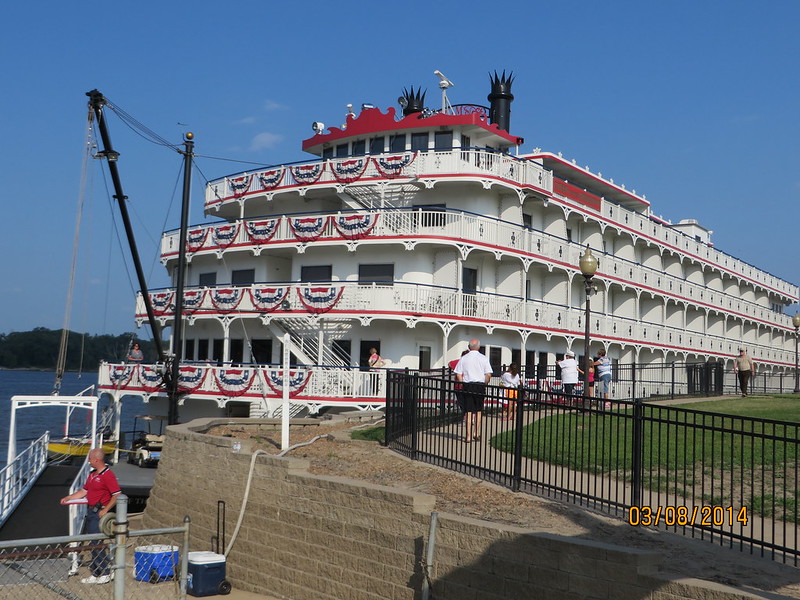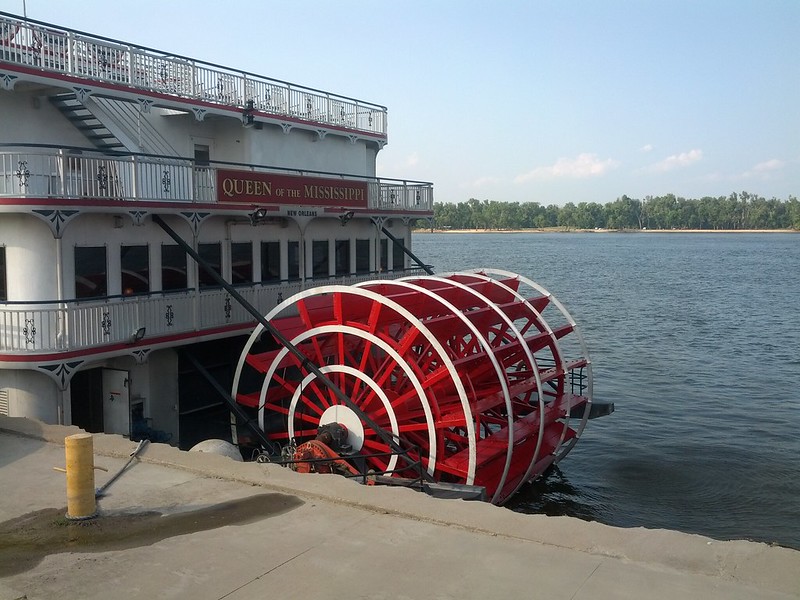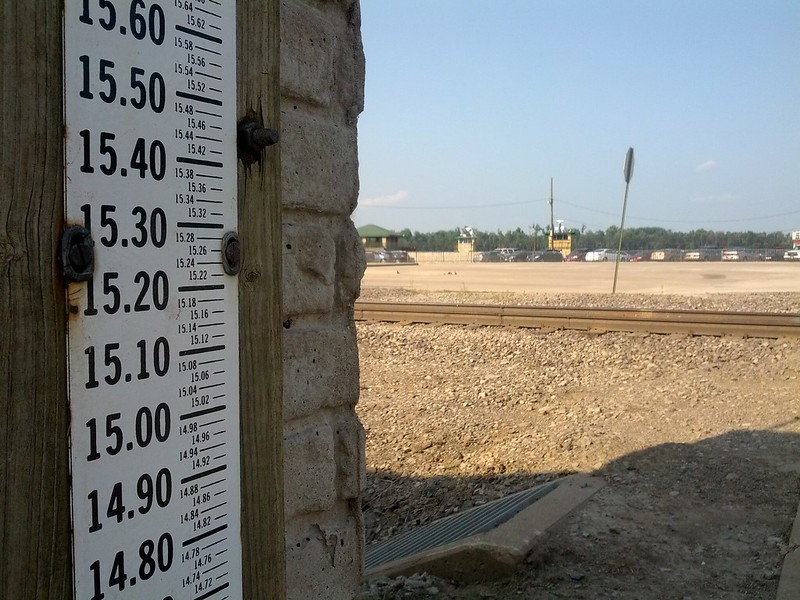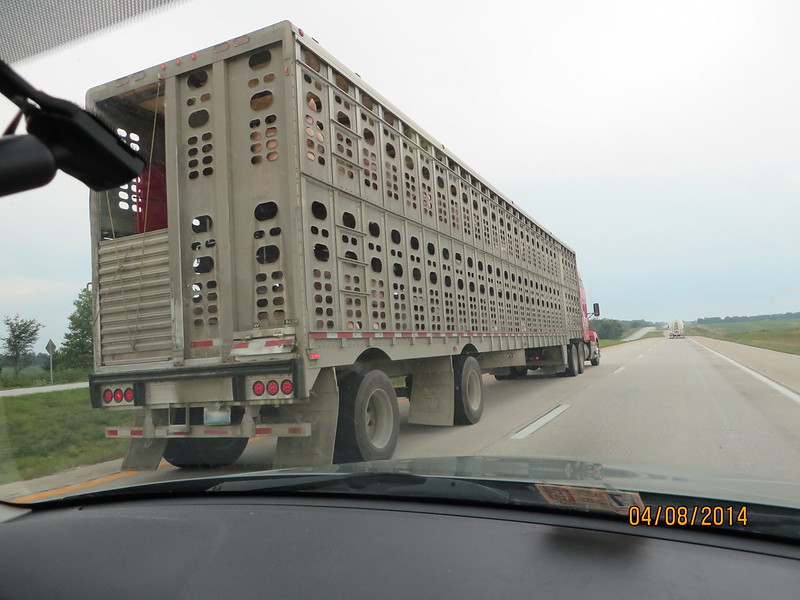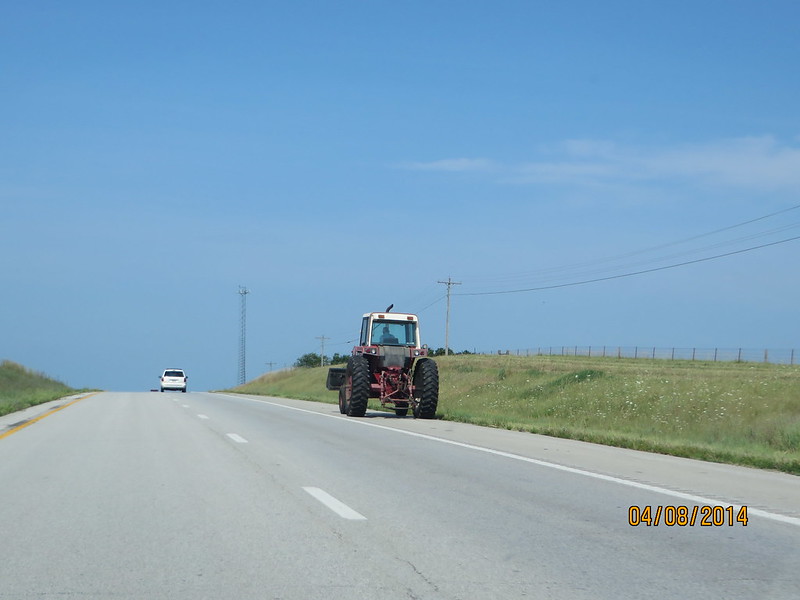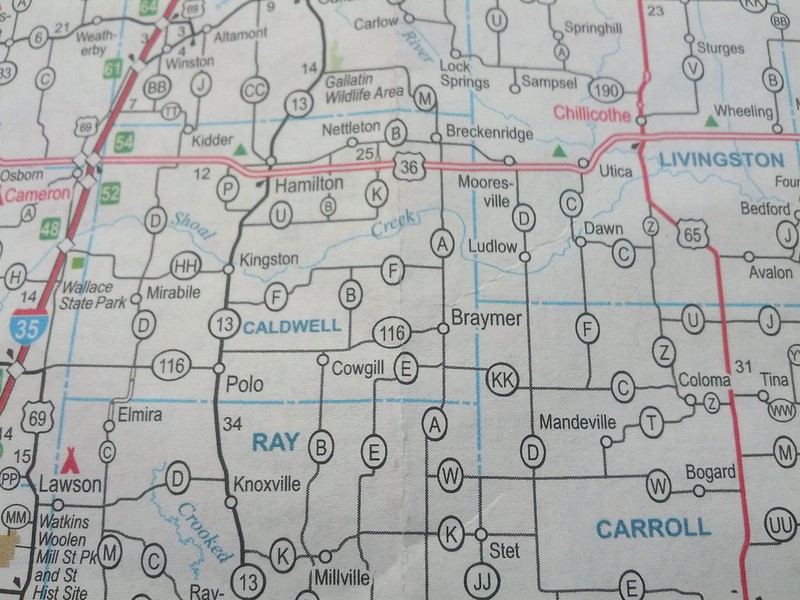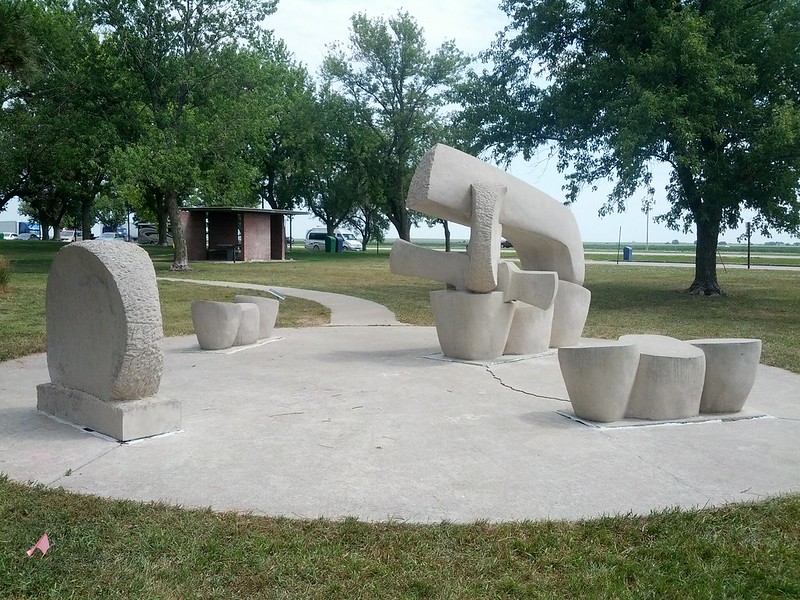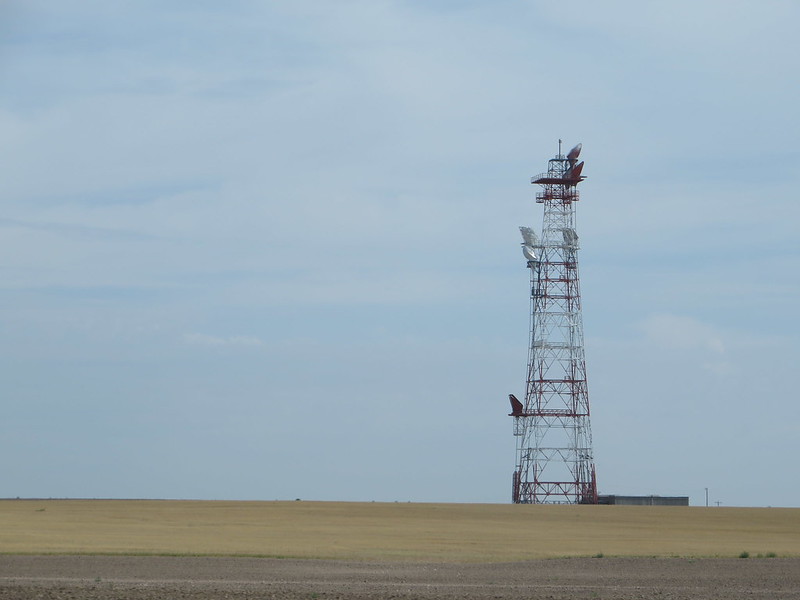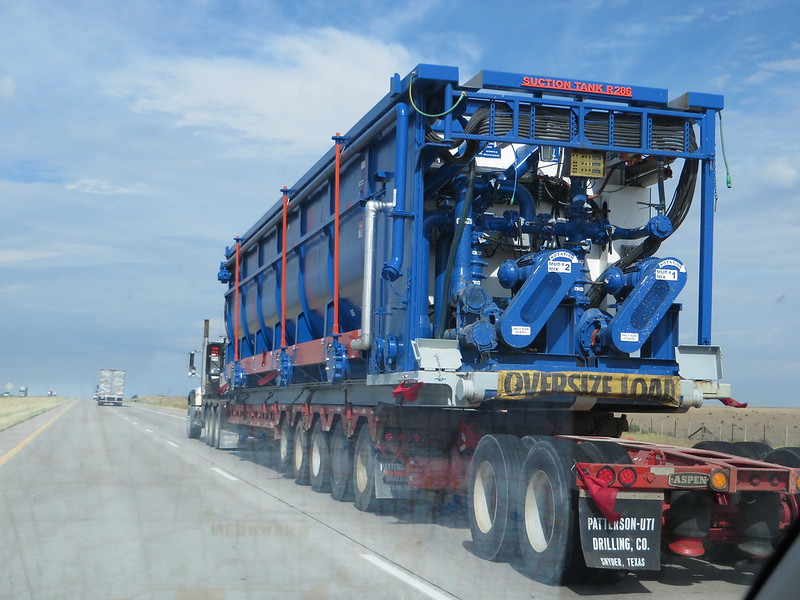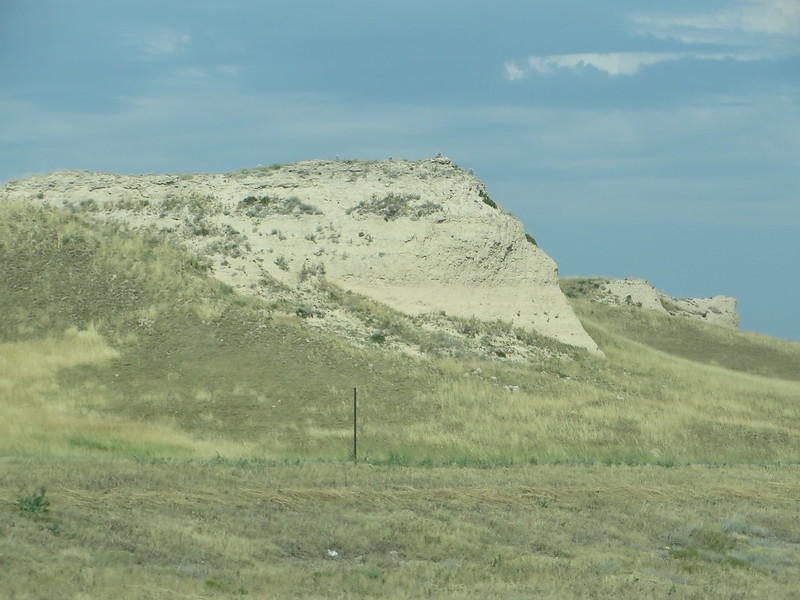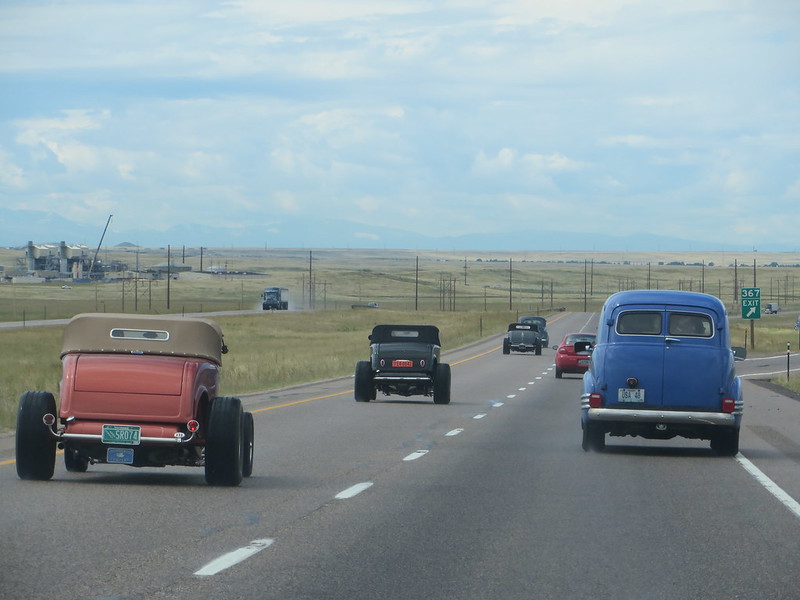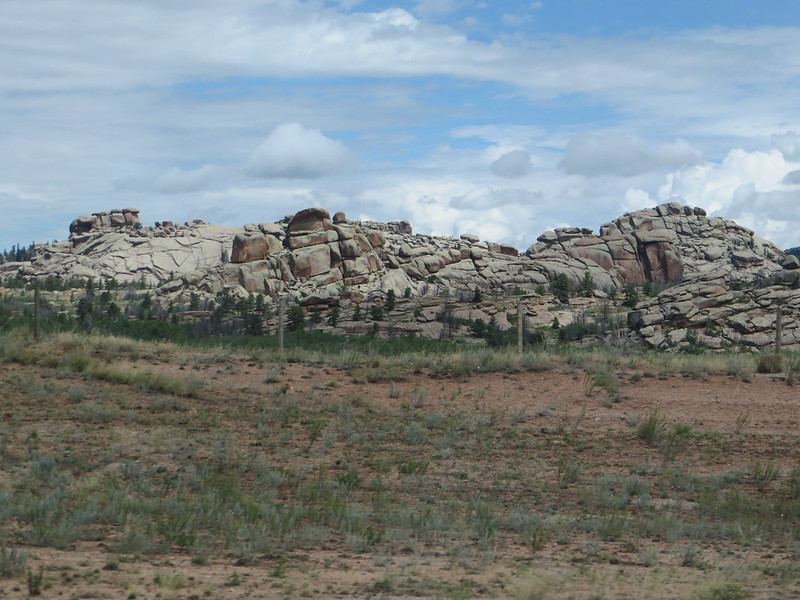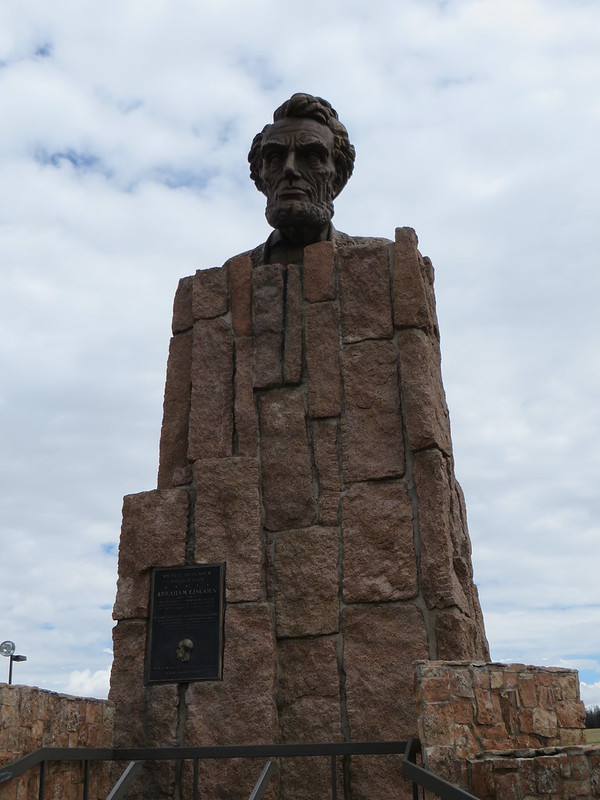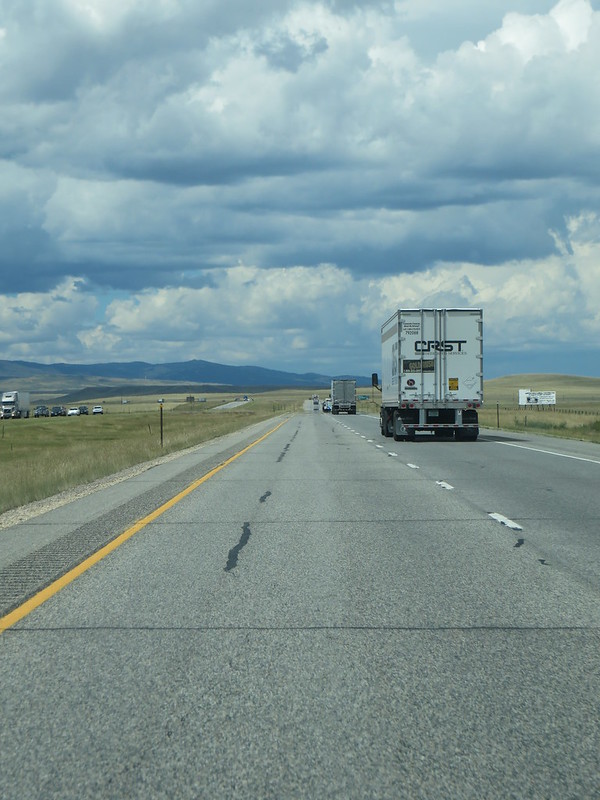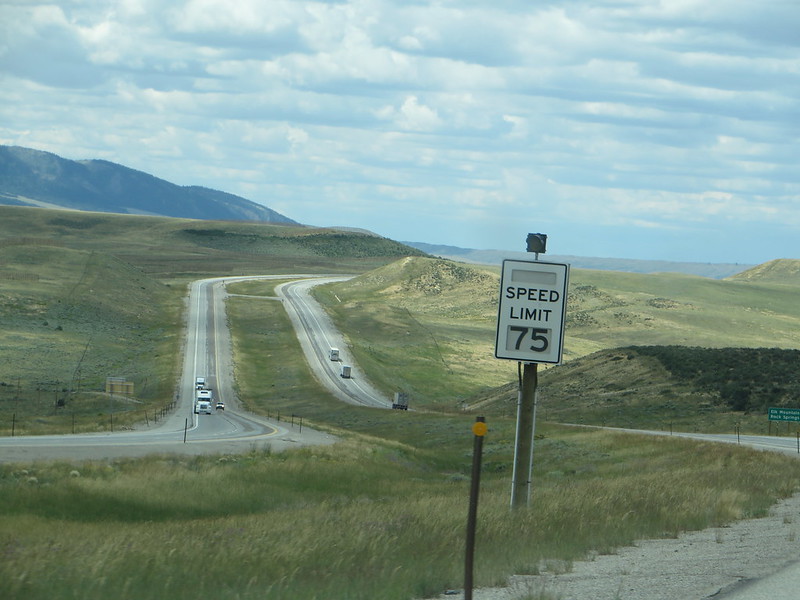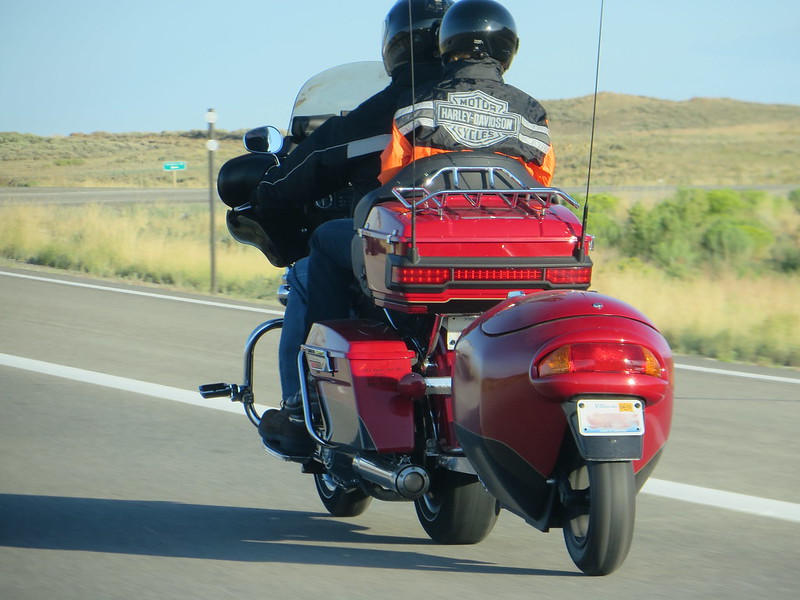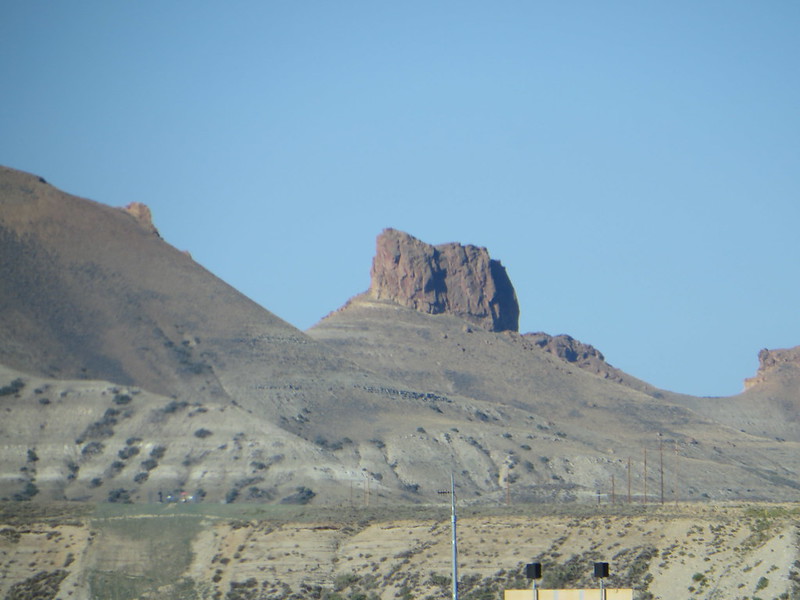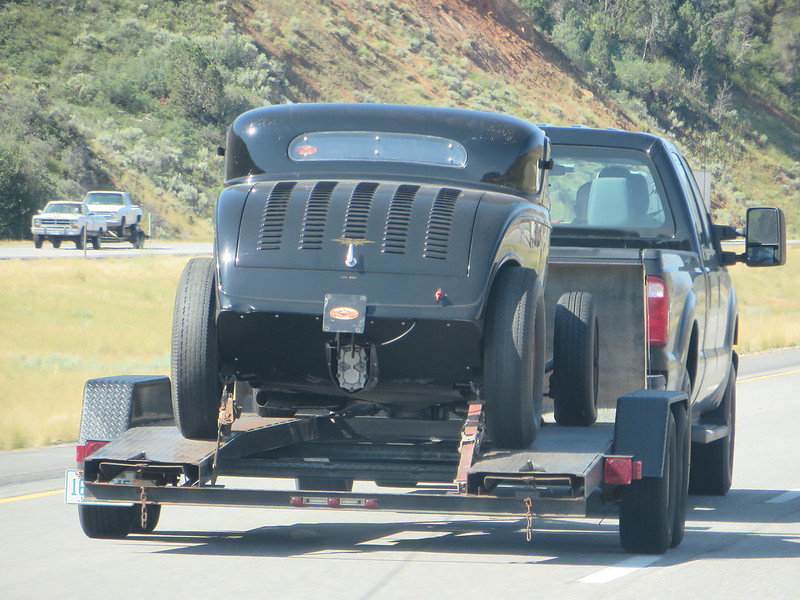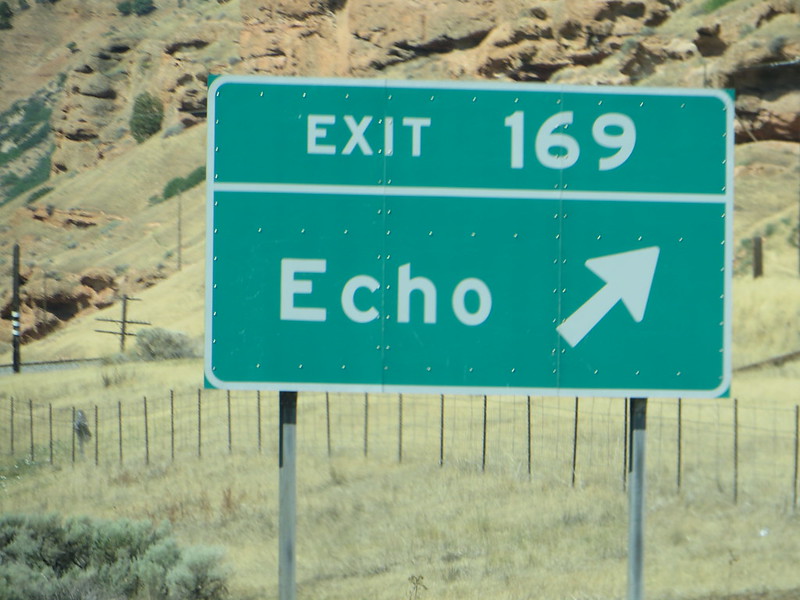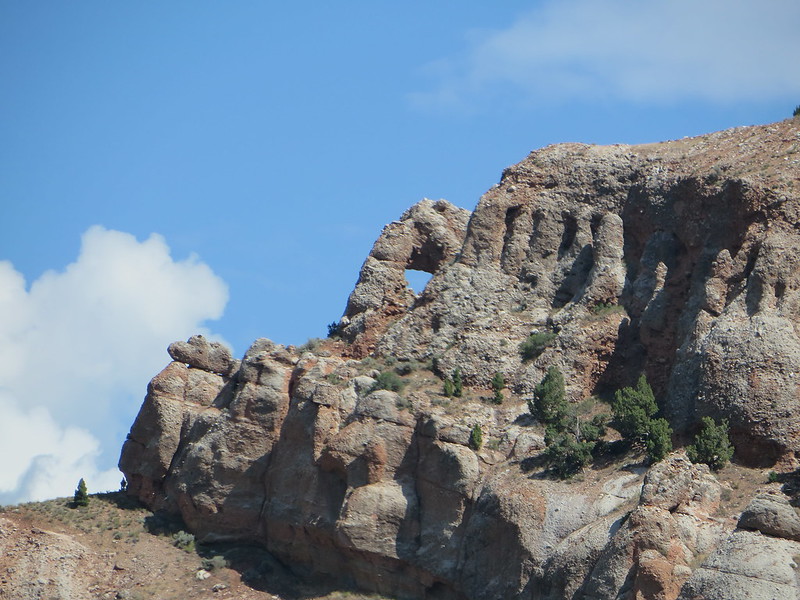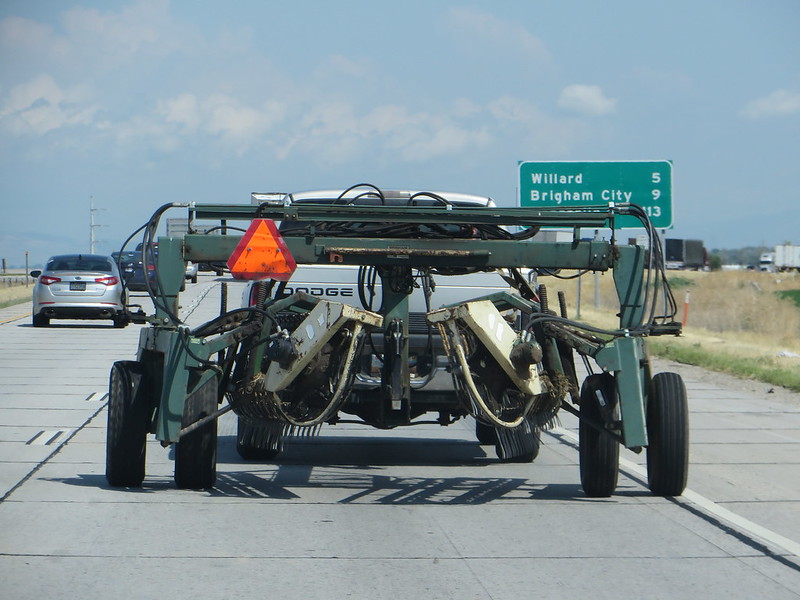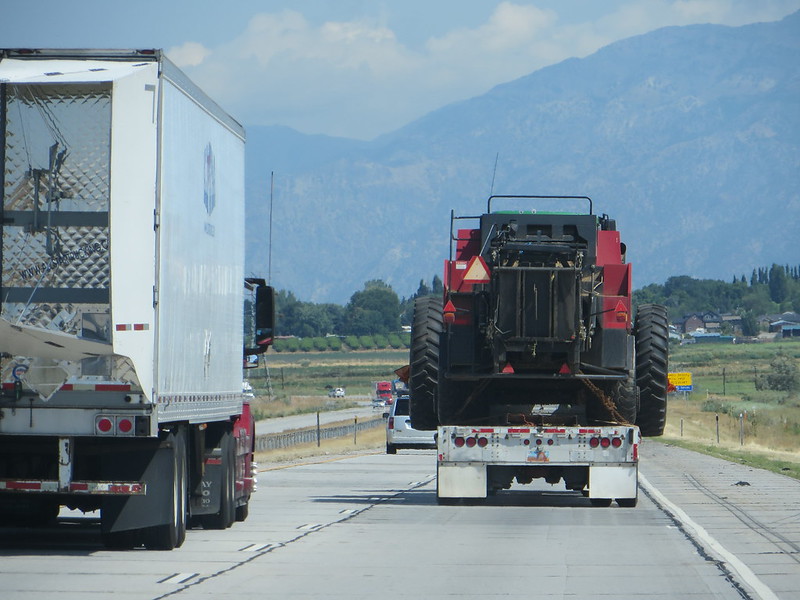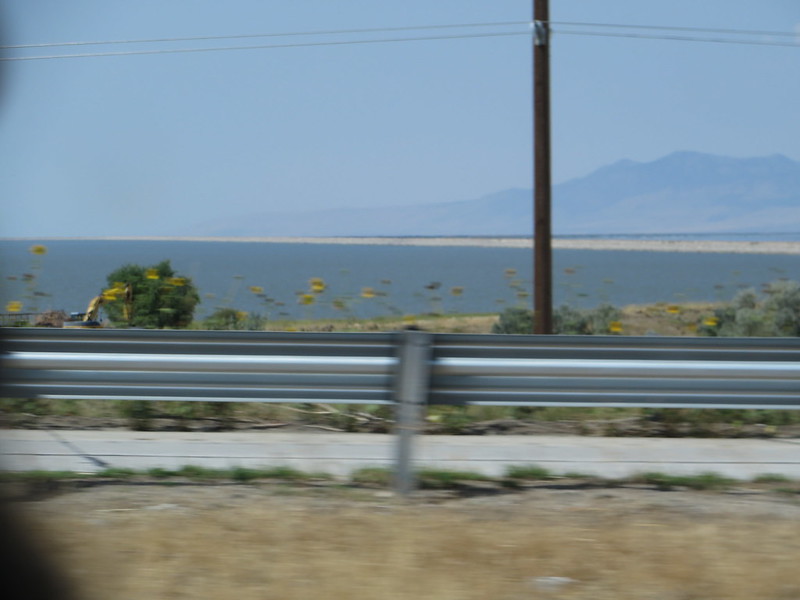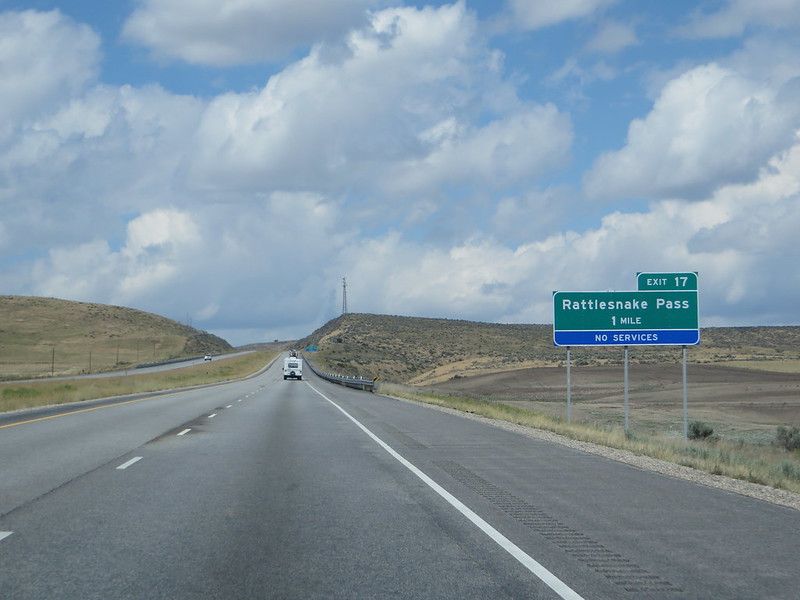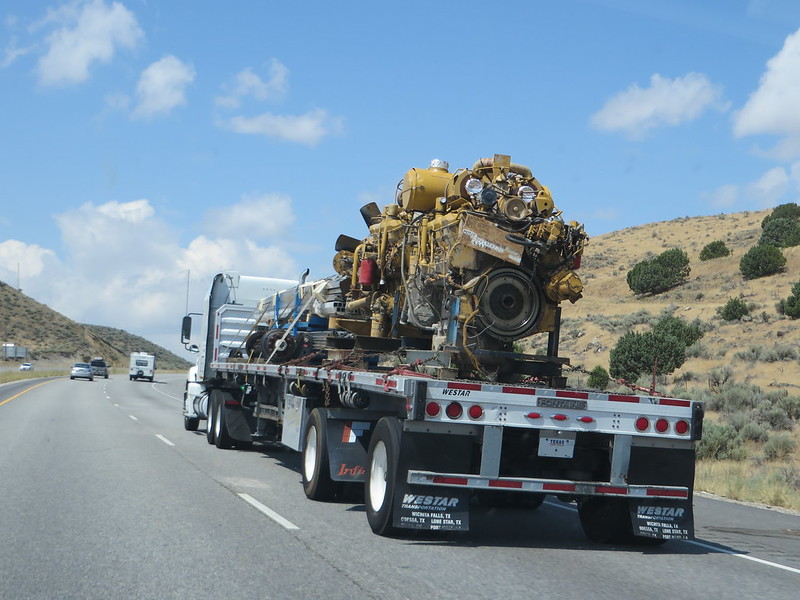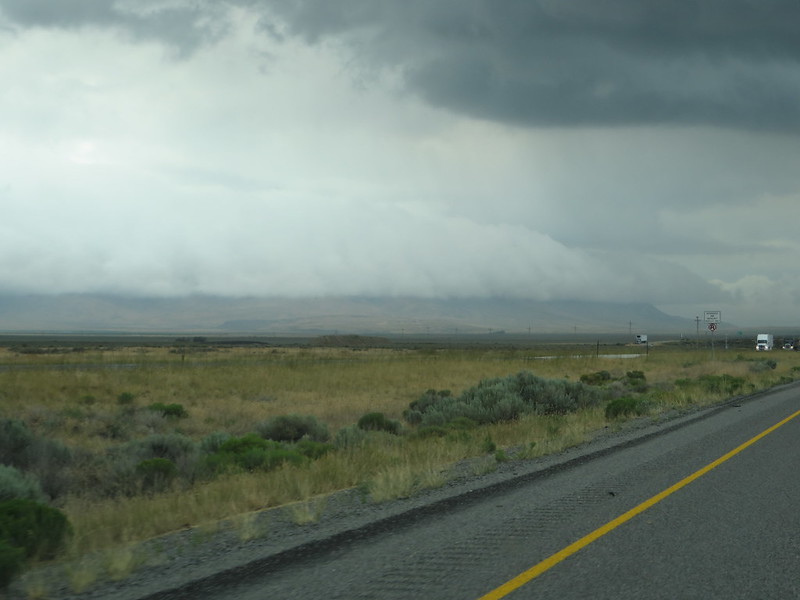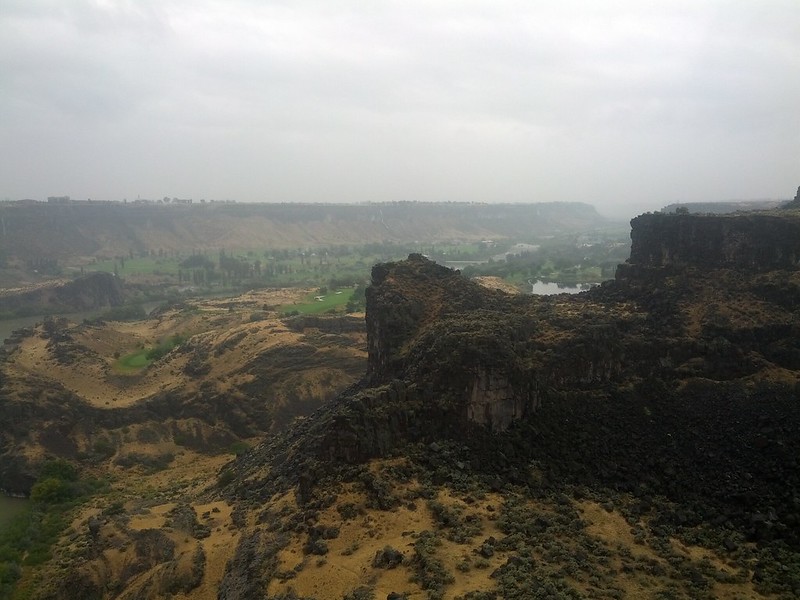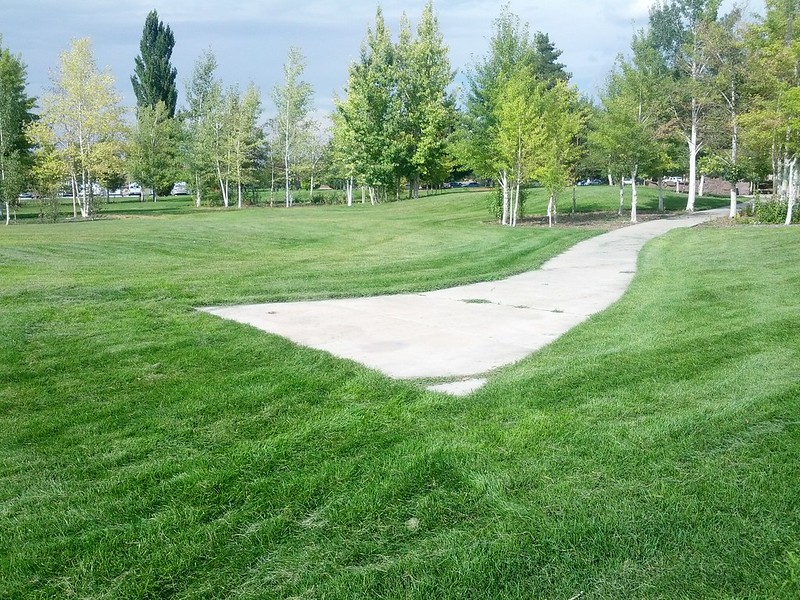How to drive to Idaho, in 39 steps
I moved to Twin Falls, Idaho at the start of August. I threw the photos up on Flickr a while back, but now seemed like a good time to post them with some sort of detail.
1. Stock up on food.
A four-day cross-country drive is a long thing. Proper nutrition is needed.
2. Get a map.
Ohio, Indiana, Illinois, Missouri, a tiny bit of Iowa, Nebraska, Wyoming, Utah and Idaho. Though we didn't really need the map for Nebraska.
3. Pass some tractors.
This was the only set of Massey-Harrises that I saw. They merged with Ferguson in 1953, becoming Massey Ferguson.
4. Pass some nice old cars.
There were a lot of these on the road.
5. Cross yet another tributary of the Mississippi.
Much of the Midwest drains into the Mississippi. I'm impressed how little of the Midwest actually drains into the Great Lakes.
6. Cross the Mississippi.
This image shows some barge traffic. It's still a major waterway.
7. Stop for the night.
Hannibal, Missouri. It's a tourist trap of a town, right on the Mississippi.
8. Visit the tourist historical district.
Hannibal is Mark Twain's hometown, but it's not the fictional town of St. Petersbug. Twain based his literary town on Hannibal, yet it seems somewhat disingenuous to actually market these things as such. There's also an antiques store called Aunt Polly's Treasures and the admission-fee-charged Haunted House on Hill Street, with life-size wax figures of book characters. It was closed.
9. Smell the flowers.
The roses were put up by the city tourism council. Roses are serious business.
10. Look at the boats.
This is an honest-to-goodness stern paddlewheeler. The Queen of the Mississippi was built in 2012 in Maryland and is based in New Orleans.
11. Smell the diesel fumes.
The boat was idling. The outer rear deck disguised an exhaust pipe, and according to Wikipedia, the wheel is hydraulically driven by a diesel powertrain, and is supplemented by a pair of azimuthal thrusters. Great to see how even boating has progressed to a hybrid power train.
12. Take precautions in event of flooding.
On the river side, Hannibal has a levee, which I would guess is 15 feet tall. The docks and train tracks are on the river side, and the levee is pierced in four places for pedestrian and vehicle traffic. Should the water rise, the gaps can be plugged with metal flood barriers. Locals said that they hadn't had a serious flood for a couple of weeks.
13. Pass a truck of pigs.
Definitely odorous. Pink pigs don't seem quite real to me, since I grew up only having met all-black, black-and-red and black-and-white Ossabaw Island Hogs.
14. Pass another tractor.
The speed limit was a minimum of 40 mph.
15. Do not get lost in Missouri.
There's supposedly rhyme and reason behind the lettering of these, related to the alphabetical order of the county in which the road starts. Some of them are farm roads to get stuff to market, but they change letters at any intersection.
16. Visit the rest stops in Nebraska.
Nebraska has some of the weirdest rest stop scultpures. Eight were erected of the planned ten in the Bicentennial Sculpture Project. They're located on opposites sides of I-80.
17. Observe relics of ancient times.
I kid. Nebraska is flat enough that line-of-sight relays are good for passing signals.
18. Pass oil rig equipment.
This suction tank is probably used in slurry handling for oil drilling.
19. Leave the plains behind.
Western Nebraska is where the smooth green waves of crops and grass become rolling hill of tan grass and grey scrub. Crops are grown under irrigation, and most of the land along the highways seems to be used for grazing.
20. Get passed by hot rods.
We played tag with a small convoy of these on I-80 in Nebraska. There must have been a car convention someplace.
21. Marvel at the rocks in Wyoming.
More bluffs!
22. Be glowered at by Lincoln.
This is the highest point in I-80. Before the Eisenhower Highway system, there was the Lincoln Highway from New York to San Francisco. It was dedicated on Halloween, 1913.
Who thought up this tremendous plan? The guy who manufactured headlights. It took until 1938 to get all the separate segments paved.
Also in 1938: FDR signed the Federal-Aid Highway Act of 1938, which resulted in a report on the feasibility of transcontinental toll roads. Things snowballed from there.
23. Enter and cross Wyoming.
24. Continue to obey the speed limit.
25. Pass this contraption.
26. Discover Utah.
27. Deja vu.
28. Announce your presence to the canyons.
29. Play a game of I Spy.
I spy an arch.
30. Ponder deep questions in Utah.
31. Discover a new species of vehicle.
These are everywhere in Utah and Idaho. Doubles and triples all over the place.
32. Drive safely.
Hay rakes handle surprisingly well at highway speeds.
33. Continue to drive safely.
There are two things wrong with this image:
- Harvester driving with its outer wheels on, without a WIDE LOAD placard
- The aerodynamic tail cone on the tractor-trailer
34. Stop to swim in the Great Salt Lake.
80 miles per hour, and no exits.
35. Continue to have service.
The sign says there's no services at Rattlesnake Pass, but the cell tower at the top of the pass provided excellent service.
36. Pass a tractor-trailer with more engines than it knows what to do with.
37. Do not get caught in strange weather phenomena.
38. Enter Twin Falls from the north.
This is the view from the southbound scenic overlook, just before crossing the Snake River Gorge on the Perrine Bridge. A record amount of rain had fallen earlier that day — almost one and a half inches!
And that's how I got to Twin Falls.
39. And this is the end of the post.
This is a sidewalk at the College of Southern Idaho, which is near my apartment. This sidewalk is at least 50 feet from any other pavement. It's just out there in the middle of nowhere.
This is my first stab at writing a Buzzfeed-style listicle.
